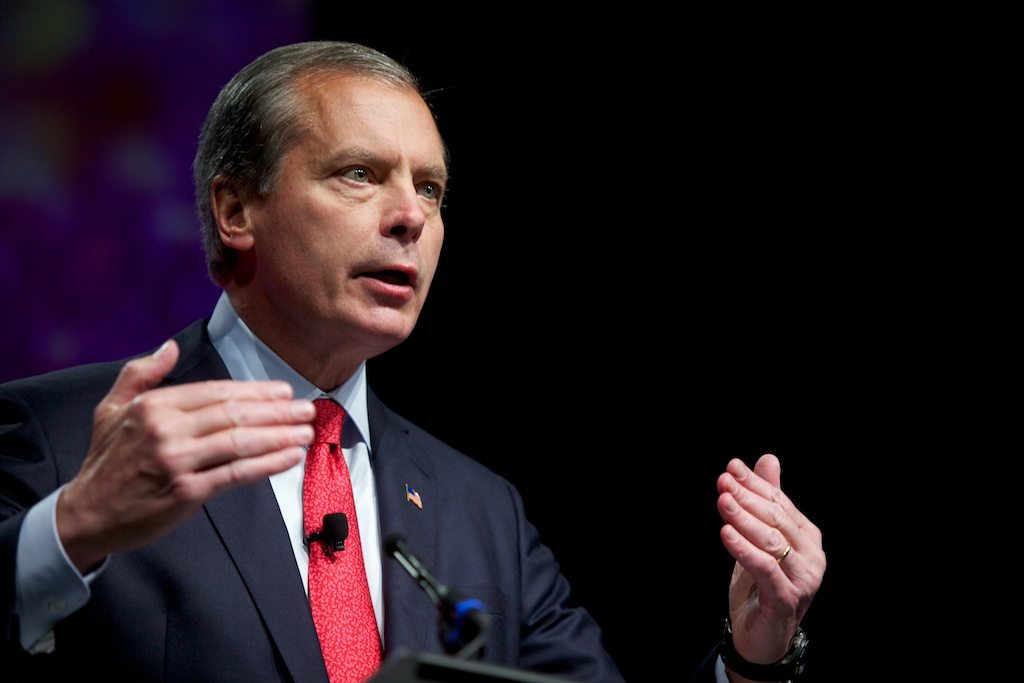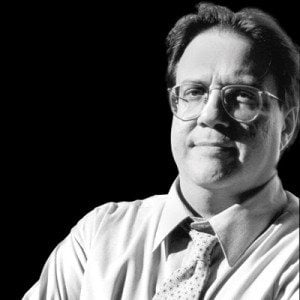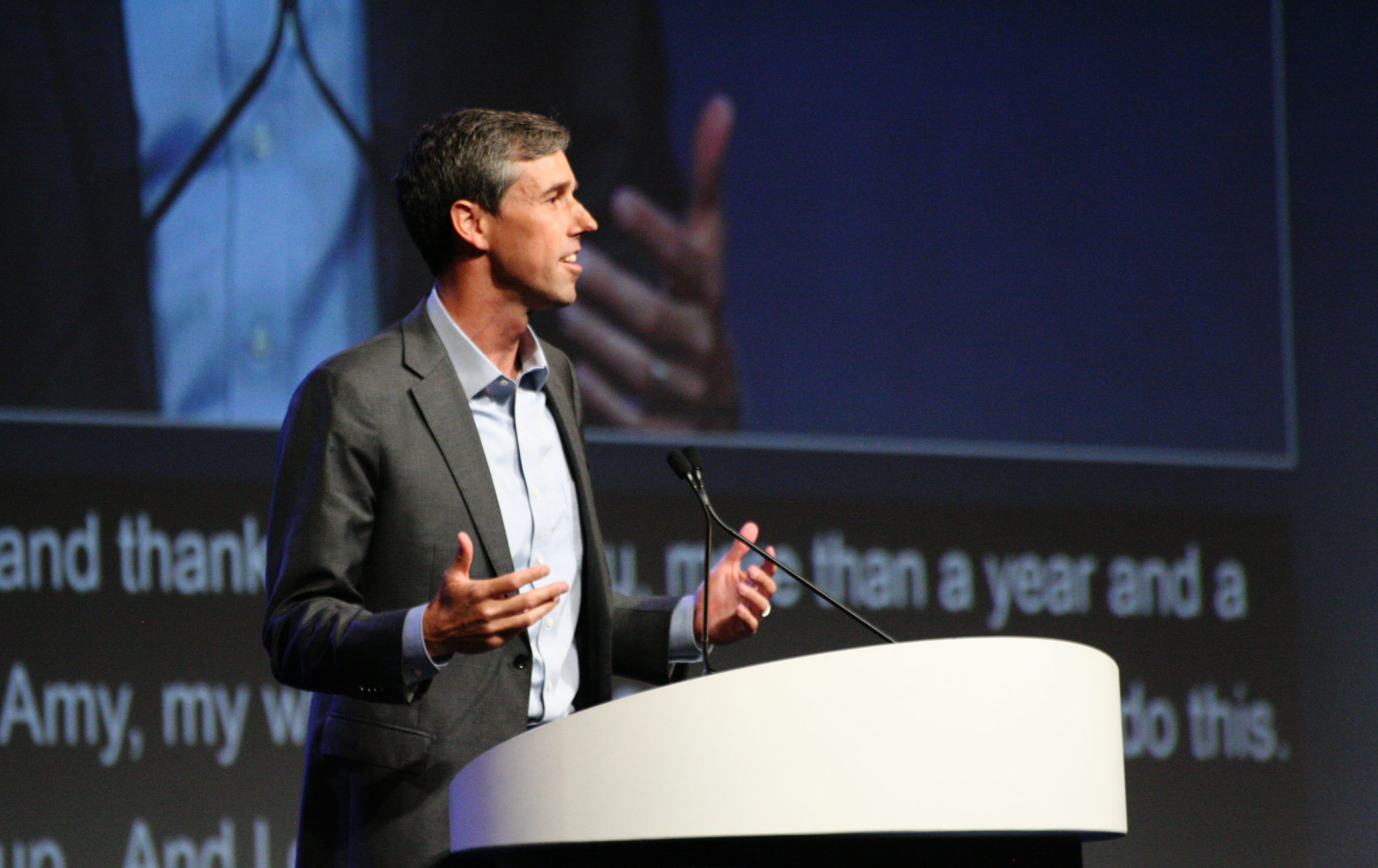
The Paranoid Style in Texas Politics

A version of this story ran in the August 2013 issue.
Above: Lt. Gov. David Dewhurst
Willie Nelson, describing his idea of freedom, once said, “I’m from Texas, and one of the reasons I like Texas is because there’s no one in control.”
The truth of that observation was never more apparent than last month, when Lt. Gov. David Dewhurst came unhinged at the statehouse and began threatening to imprison members of the Texas media.
Dewhurst’s freak-out bears examination, because it was one of those wonderfully revealing moments that shows how frustrating it can be for Texas reporters trying to gather facts from state officials. His knee-jerk disdain for the state’s press corps also pulled back the curtain on the Texas government’s increasingly antagonistic disrespect for the public’s right to know—a disrespect that began when George W. Bush and his designated media ass-kicker, Karen Hughes, began plotting ways to permanently change the culture—and the coverage—of the state’s political reporters.
Dewhurst’s gavel turned to limp roadhouse okra when he lost control of the Senate chamber, the clock and perhaps his mind in the waning minutes of the raucous statehouse “debate” over Senate Bill 5, the thinly disguised attempt to ban abortion in Texas that launched state Sen. Wendy Davis’ now-famous filibuster.
With elderly pro-choice advocates being hauled away by state troopers and fevered partisans hooting and hollering in the Senate chamber gallery—and seemingly no one paying any attention at all to the funereal-looking Dewhurst, the Lite Gov. apparently fell under the impression that fault for the chaos must lie with the Texas media. Dewhurst concluded that biased Texas reporters—not the procedural chicaneries on blatant display—were inciting the gallery to the noisemaking that ultimately blocked a last-minute vote on SB 5.
Dewhurst quickly decided to visit right-wing gasbag Ed Morrissey’s radio show to spell out his conspiracy theory. Terry Southern—the Texas genius who helped write the screenplay for Stanley Kubrick’s Dr. Strangelove, the sine qua non look at paranoid American politics—could not have made up Dewhurst’s monologue:
“We have reports, and I have my staff taking a look at the video, the Internet video that we keep, we store, on the proceedings of that evening, and if I find, as I’ve been told, examples of the media waving and trying to inflame the crowd, incite them in the direction of a riot, I’m going to take action against them. That is wrong. That is inciting a riot. And we have a provision that rules that if people do not deport themselves with decorum and they’re not respectful of the legislative process, one of our rules says we can imprison them for 48 hours.”
Dewhurst gets props for openly articulating the state leadership’s true feelings—a suspicion of the Texas media that has been a hallmark of the Texas GOP since Ann Richards left office. Richards was close to Molly Ivins, and she understood that statehouse reporters were doing their jobs—not advancing a creeping socialist agenda.
Even the increasingly delirious Lt. Gov. Bob Bullock—haunted by whiskey dreams and decades of backroom deals—messed with the media only selectively, and one-on-one, whispering in the ear of a Dallas Morning News reporter that he wanted to “fuck” the paper’s editorial page editor, for instance, or sending seductive roses to Ivins, or unleashing telephone tirades against reporters he claimed were smoking pot inside the Capitol.
Bullock at least had a wary respect for the Texas media—a respect instilled in him by Ivins. He’d once tried to “imprison” that most influential political reporter in Texas history in an Austin bar by refusing to let her out of the booth they were sharing. Ivins responded by knocking the most powerful politician in Texas on his ass, stepping over him and strolling away.
But it was Bush and his “communications specialist” Hughes who began orchestrating an aggressively dismissive stance toward the state media. Dewhurst merely inherited their playbook. But David Dewhurst is no George W. Bush, and his posturing has generated nothing but backfires. In a rare show of solidarity, almost every legislative reporter at the Capitol has expressed outrage at his threats.
Just maybe, those threats will “incite” a more probing scrutiny of Dewhurst and the statehouse. Not as a matter of vengeance, but as an expression of professional pride, and of a reawakened and reinvigorated sense of skepticism by the state’s journalists, who could hardly be blamed for wondering just exactly what the hell David Dewhurst is so paranoid about.


